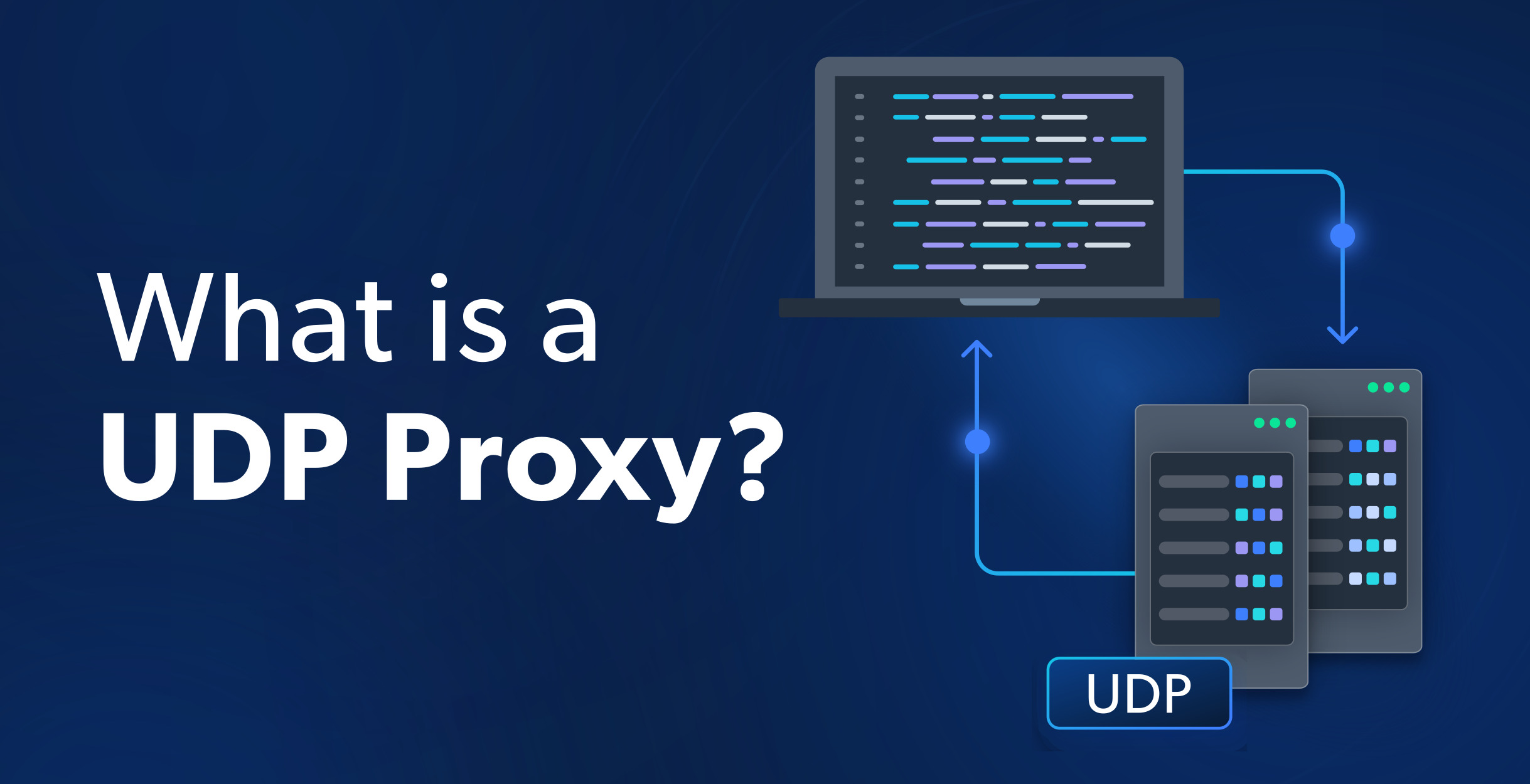UDP Proxy: How It Works and Why You Need It
In the world of networking, UDP Proxy plays a crucial role in optimizing and securing data transmission. Unlike traditional proxies that operate on TCP (Transmission Control Protocol), a UDP Proxy specifically handles UDP (User Datagram Protocol) traffic, making it an essential tool for applications that require real-time data transfer. In this article, we will explore what a UDP Proxy is, how it works, and why it is beneficial for businesses and individuals alike.
What Is a UDP Proxy?
A UDP Proxy is a network service that intermediates UDP-based traffic between a client and a server. Unlike TCP, which establishes a connection before transmitting data, UDP is a connectionless protocol that prioritizes speed and efficiency. This makes it ideal for applications such as online gaming, VoIP (Voice over Internet Protocol), video streaming, and DNS (Domain Name System) queries.
It ensures smooth and uninterrupted communication by forwarding packets between the client and the destination server. It can also provide security features such as IP masking, firewall bypassing, and traffic filtering.
How Does It Work?
A UDP Proxy functions by intercepting UDP packets from the client and forwarding them to the target server. Here’s a step-by-step breakdown of its working mechanism:
- Packet Reception: The proxy server receives UDP packets from the client.
- Address Translation: The proxy modifies the packet headers, if necessary, to ensure they are correctly forwarded.
- Forwarding: The proxy transmits the UDP packets to the intended destination.
- Response Handling: If a response is needed, the server sends packets back to the proxy, which then forwards them to the client.
- Security and Optimization: Depending on the configuration, the proxy may filter or optimize traffic to enhance performance and security.

Benefits of Using a UDP Proxy
Using a UDP Proxy offers several advantages, especially for businesses and individuals relying on real-time data transmission. Some key benefits include:
- Improved Security – It can mask a user’s IP address, preventing potential cyber threats such as DDoS (Distributed Denial of Service) attacks. It also acts as a firewall, filtering out malicious traffic before it reaches the target server.
- Bypassing Geo-Restrictions and Firewalls – Many organizations and regions restrict access to certain applications or services. A UDP Proxy helps users bypass these restrictions by routing traffic through an intermediary server located in a different region.
- Optimized Performance – By caching and optimizing traffic flow, it reduces latency and improves data transmission speed. This is particularly useful for online gaming and video streaming services, where real-time performance is critical.
- Load Balancing – It can distribute traffic among multiple servers, preventing overload and ensuring a stable and efficient network experience.
- Uninterrupted VoIP and Streaming Services – Since UDP is commonly used for VoIP and streaming applications, a UDP Proxy ensures smooth and high-quality communication without excessive buffering or lag.
Use Cases of UDP Proxy
It is useful in various scenarios, including:
- Gaming Servers: Enhancing speed and reducing lag for online multiplayer games.
- VoIP Services: Improving call quality and reliability for voice communication.
- Streaming Platforms: Ensuring seamless video and audio streaming experiences.
- Corporate Networks: Enhancing security and bypassing restrictions for business applications.
- DNS Services: Protecting DNS queries from interception and optimizing domain resolution.
Conclusion
A UDP Proxy is an essential tool for businesses and individuals who rely on real-time data transmission. By enhancing security, bypassing restrictions, optimizing performance, and ensuring uninterrupted services, it provides a valuable solution for networking needs. Whether you are a gamer, a VoIP user, or a business seeking better network performance, implementing a UDP Proxy can significantly improve your online experience.
If you are looking for a reliable UDP Proxy service, ensure that it offers features like IP masking, firewall bypassing, and load balancing to maximize efficiency and security. Investing in a high-quality UDP Proxy can help you achieve a seamless and secure network connection.